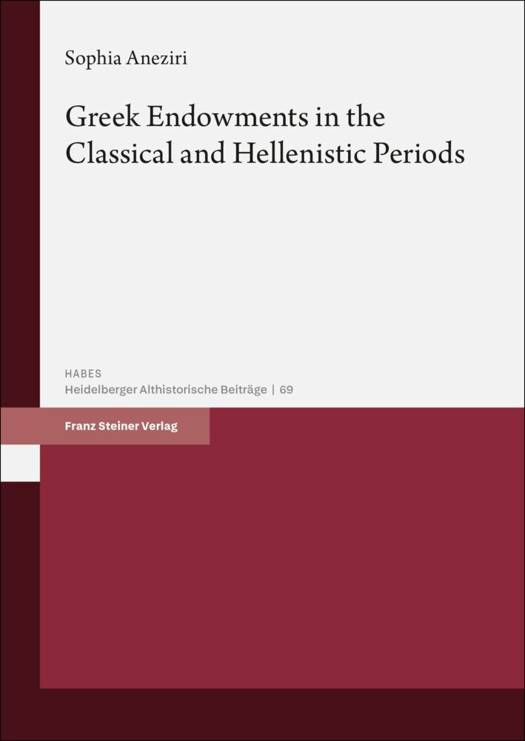
Bedankt voor het vertrouwen het afgelopen jaar! Om jou te bedanken bieden we GRATIS verzending (in België) aan op alles gedurende de hele maand januari.
- Afhalen na 1 uur in een winkel met voorraad
- In januari gratis thuislevering in België
- Ruim aanbod met 7 miljoen producten
Bedankt voor het vertrouwen het afgelopen jaar! Om jou te bedanken bieden we GRATIS verzending (in België) aan op alles gedurende de hele maand januari.
- Afhalen na 1 uur in een winkel met voorraad
- In januari gratis thuislevering in België
- Ruim aanbod met 7 miljoen producten
Zoeken
Greek Endowments in the Classical and Hellenistic Periods
Sophia Aneziri
€ 244,45
+ 488 punten
Uitvoering
Omschrijving
Endowments (or foundations) are a widespread phenomenon in antiquity. The present work assembles all known ancient Greek endowments from the Classical and Hellenistic periods, presenting the texts in Greek and in translation. The main aim of the volume is to discuss endowments in their political, social, economic, cultural and religious contexts, thus contributing to our understanding of society and economy of these periods. Endowments were donations or bequests of property whose income was intended to fund specific purposes defined by the donors. The donated property was to be preserved intact, in order to guarantee that the intentions of the sponsor would be served in perpetuity. The recipients of the endowments were usually civic communities, sanctuaries or associations. The book discusses important aspects on the vocabulary and terminology of the endowments, their legal, economic and administrative characteristics, the identity of the donors (Hellenistic kings or private individuals), and the various purposes served by them. This analysis shows that the endowments fall within the broad phenomenon of euergetism that offered benefits to both the endowers and the recipients.
Specificaties
Betrokkenen
- Auteur(s):
- Uitgeverij:
Inhoud
- Aantal bladzijden:
- 559
- Taal:
- Engels
- Reeks:
- Reeksnummer:
- nr. 69
Eigenschappen
- Productcode (EAN):
- 9783515139168
- Verschijningsdatum:
- 29/08/2025
- Uitvoering:
- Paperback
- Formaat:
- Trade paperback (VS)
- Afmetingen:
- 173 mm x 239 mm
- Gewicht:
- 975 g

Alleen bij Standaard Boekhandel
+ 488 punten op je klantenkaart van Standaard Boekhandel
Beoordelingen
We publiceren alleen reviews die voldoen aan de voorwaarden voor reviews. Bekijk onze voorwaarden voor reviews.









